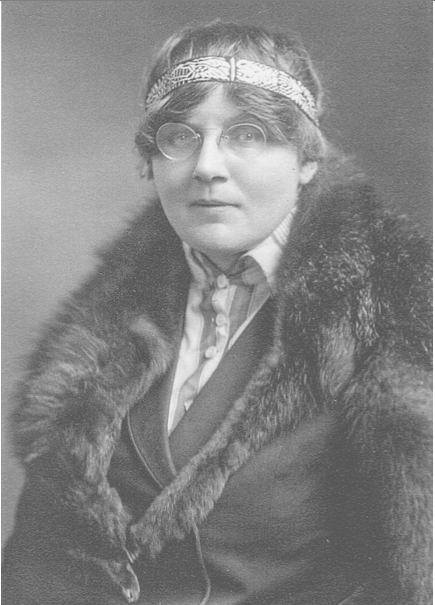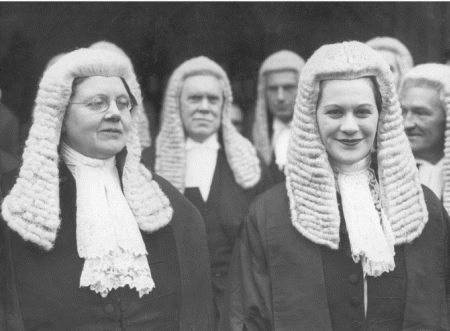.jpg/320px-Photograph_of_Helena_Normanton_c._1930_(22770439042).jpg) Helena
Florence Normanton, KC (14
December 1882 – 14 October 1957) was the first woman Admitted to Inn of Court
(Middle Temple) in 1919 and the first woman King’s Counsel in England in 1949.
Helena
Florence Normanton, KC (14
December 1882 – 14 October 1957) was the first woman Admitted to Inn of Court
(Middle Temple) in 1919 and the first woman King’s Counsel in England in 1949.
Queer Places:
25, Aldersmead Road, Beckenham, Kent
St Wulfran Churchyard
Ovingdean, Brighton and Hove Unitary Authority, East Sussex, Englan
.jpg/320px-Photograph_of_Helena_Normanton_c._1930_(22770439042).jpg) Helena
Florence Normanton, KC (14
December 1882 – 14 October 1957) was the first woman Admitted to Inn of Court
(Middle Temple) in 1919 and the first woman King’s Counsel in England in 1949.
Helena
Florence Normanton, KC (14
December 1882 – 14 October 1957) was the first woman Admitted to Inn of Court
(Middle Temple) in 1919 and the first woman King’s Counsel in England in 1949.
She was the first woman to practise as a barrister in England. In November 1922, she was the second woman to be called to the Bar of England and Wales, following the example set by Ivy Williams in May 1922. When she married she kept her surname and in 1924 she was the first British married woman to have a passport in the name she was born with.
Normanton was born in East London to Jane Amelia Marshall, daughter of Thomas Williams Marshall, and piano maker William Alexander Normanton.[1] In 1886, when she was just four years old, her father was found dead in a railway tunnel. Her mother, who may already have been separated from her father, a stigmatised position in those days,[1] brought up Helena and her younger sister Ethel alone[2]— letting rooms in the family home, before moving to Brighton to run a grocery and later a boarding house.[3] Normanton describes the moment she decided to become a barrister in her book, 'Everyday Law for Woman'. She says that as a twelve years old girl, she was visiting a solicitor's office with her mother, who was unable to understand the solicitor’s advice.[4] Normanton recognised this situation as a form of sex discrimination and wished to help all women gain access to the law, which at the time was a profession only open to men.[1] In the book, Normanton reflects: "I still do not like to see women getting the worst end of any deal for lack of a little elementary legal knowledge which is the most common form amongst men".[4] She read modern history at the University of London[5] as an external student,[5] graduating with first class honours,[5] obtained a Scottish Secondary Teachers' Diploma, and held a diploma in French language, literature and history from Dijon University.[6] She lectured in history at Glasgow University and London University, and began to speak and write about feminist issues. She spoke at meetings of the Women's Freedom League and supported the Indian National Congress.


Helena Normanton (left) and Rose Heilbron on their appointment as the
first women King’s Counsels in England, 1949. Robinson, Jane. Ladies Can’t
Climb Ladders (p.198). Transworld. Edizione del Kindle.
Normanton held ambitions to become a barrister from a young age. An application to become a student at Middle Temple in 1918 was refused, and she lodged a petition with the House of Lords. She reapplied on 24 December 1919, within hours of the Sex Disqualification (Removal) Act 1919 coming into force, and was admitted to Middle Temple.[7][8] She married Gavin Bowman Watson Clark in 1921,[6] but preserved her maiden name for professional reasons.[7] In 1924, she became the first married British woman to be issued a passport in her maiden name.[9] She was the second woman to be called to the bar, on 17 November 1922, shortly after Ivy Williams. She was the first woman to obtain a divorce for her client, the first woman to lead the prosecution in a murder trial, and the first woman to conduct a trial in America and to appear at the High Court and the Old Bailey. In 1949, along with Rose Heilbron, she was one of the first two women King's Counsel at the English Bar.[9]
Normanton was a campaigner for women's rights and women's suffrage, becoming the first married woman in Britain to have a passport in her maiden name, believing that men and women should keep their money and property separately.[10] She was also a pacifist, later being a supporter of CND.[9] Ten years after the passing of the Sex Disqualification (Removal) Act 1919, Normanton spoke at the Women’s Engineering Society’s seventh Annual Conference in July 1929, alongside Professor Winifred Cullis, the first woman to hold a professorial chair at a medical school, and architect Edna Mosely. In her speech, Normanton noted that there were "nearly a hundred women solicitors in this country and most of them have brilliant qualifications; she did not believe in any boycott of men in professions, but the women ought at least to be brought into the sphere of action. There was a general muddle as present in regard to the position of women…They might become engineers but not minsters of the Church; they might not enter the sacred portals of the Stock Exchange nor the House of Lords; they could become a Cabinet Minister but not an Ambassador. While any woman was held back from the position to which her talents drew her, the whole of womanhood was lowered".[11] She acted as the Honorary Legal Adviser for the Women's Engineering Society from 1936 until 1954, succeeding Theodora Llewelyn Davies in the role.[12][13] She campaigned for divorce reform, and was president of the Married Women's Association until 1952, when the other officials resigned over her memorandum of evidence to the Royal Commission on Divorce, which they regarded as 'anti-man'. Normanton formed a breakaway body called the Council of Married Women.[7] She founded the Magna Carta Society. She was a pacifist throughout her life, and demonstrated against the nuclear bomb after the Second World War.
Normanton died on 14 October 1957, and after cremation was buried with her husband Gavin Bowman Watson Clark in Ovingdean churchyard, Sussex.[14]
In February 2019, 218 Strand Chambers rebranded as Normanton Chambers in her honour. This is the first instance of a barristers' chambers being named after a woman.[15] In 2020 barrister Karlia Lykourgou set up the first legal outfitter dedicated to offering courtwear for women, as much of the exisiting provision was impractical and uncomfortable. She named it Ivy & Normanton, in honour of Ivy Williams, the first woman to be called to the Bar in May 1922, and Helena Normanton.[16]
My published books: